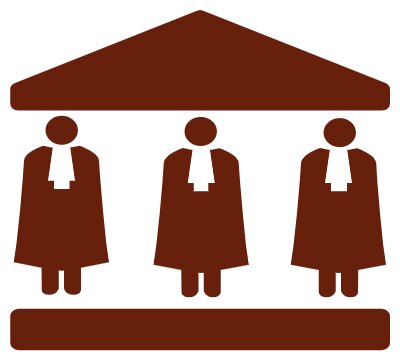Best Collaborative Law Lawyers in Kuala Lumpur
Share your needs with us, get contacted by law firms.
Free. Takes 2 min.
Free Guide to Hiring a Family Lawyer
List of the best lawyers in Kuala Lumpur, Malaysia
About Collaborative Law Law in Kuala Lumpur, Malaysia:
Collaborative Law is a method of dispute resolution where parties work together with their respective lawyers to find mutually acceptable solutions. It is a process that emphasizes cooperation and negotiation rather than litigation. In Kuala Lumpur, Malaysia, Collaborative Law is gaining popularity as an effective way to resolve family disputes, divorce cases, and other legal matters.
Why You May Need a Lawyer:
There are several situations where you may need a lawyer specializing in Collaborative Law. Some common scenarios include divorce proceedings, child custody disputes, or inheritance conflicts. A lawyer can provide legal advice, negotiate on your behalf, and help you reach a fair and amicable resolution with the other party.
Local Laws Overview:
In Kuala Lumpur, Malaysia, Collaborative Law is governed by the Collaborative Family Law Act. This legislation outlines the rights and responsibilities of parties engaging in the collaborative process, as well as the procedures to be followed. It is important to consult with a lawyer who is well-versed in Malaysian law to ensure compliance with all legal requirements.
Frequently Asked Questions:
1. What is the main advantage of Collaborative Law?
The main advantage of Collaborative Law is that it allows parties to retain control over the decision-making process and tailor solutions to meet their unique needs.
2. How long does a typical Collaborative Law process take?
The length of a Collaborative Law process can vary depending on the complexity of the case and the willingness of parties to cooperate. On average, it can take several months to reach a resolution.
3. Can I use Collaborative Law for any legal matter?
Collaborative Law is commonly used for family disputes, divorce cases, and civil matters. It may not be suitable for criminal cases or disputes involving public policy issues.
4. Is Collaborative Law less expensive than traditional litigation?
Collaborative Law can be more cost-effective than traditional litigation as it often involves fewer court appearances and legal fees. However, the total cost will depend on the complexity of the case.
5. What happens if the Collaborative Law process is unsuccessful?
If the Collaborative Law process is unsuccessful, parties may choose to pursue other methods of dispute resolution, such as mediation or litigation.
6. Can I change lawyers during the Collaborative Law process?
Yes, parties have the right to change lawyers at any point during the Collaborative Law process if they feel it is necessary. However, it is important to consider the implications of such a decision.
7. Are Collaborative Law agreements legally binding?
Yes, Collaborative Law agreements are legally binding once signed by all parties involved. It is important to carefully review and understand the terms of the agreement before signing.
8. Do I need to attend court hearings in Collaborative Law cases?
In Collaborative Law cases, parties typically do not need to attend court hearings unless necessary. The focus is on reaching a resolution through negotiation and cooperation outside of the courtroom.
9. How do I find a qualified Collaborative Law lawyer in Kuala Lumpur?
You can search for Collaborative Law lawyers in Kuala Lumpur through legal directories, bar associations, or recommendations from trusted sources. It is important to choose a lawyer with experience in Collaborative Law and a good track record of success.
10. Can I have a free consultation with a Collaborative Law lawyer?
Many Collaborative Law lawyers offer free initial consultations to discuss your case and provide legal advice. This is a good opportunity to assess the lawyer's expertise and determine if they are the right fit for your needs.
Additional Resources:
For more information on Collaborative Law in Kuala Lumpur, Malaysia, you can visit the Malaysian Bar Council website or consult with the Collaborative Family Law Association of Malaysia. These resources can provide valuable insights and support for individuals seeking legal advice in Collaborative Law.
Next Steps:
If you require legal assistance in Collaborative Law in Kuala Lumpur, Malaysia, the first step is to find a qualified and experienced lawyer specializing in this area. Schedule a consultation to discuss your case, understand your rights and options, and begin the collaborative process towards a favorable resolution. Remember, collaboration is key to finding mutually acceptable solutions and moving forward positively.
Lawzana helps you find the best lawyers and law firms in Kuala Lumpur through a curated and pre-screened list of qualified legal professionals. Our platform offers rankings and detailed profiles of attorneys and law firms, allowing you to compare based on practice areas, including Collaborative Law, experience, and client feedback.
Each profile includes a description of the firm's areas of practice, client reviews, team members and partners, year of establishment, spoken languages, office locations, contact information, social media presence, and any published articles or resources. Most firms on our platform speak English and are experienced in both local and international legal matters.
Get a quote from top-rated law firms in Kuala Lumpur, Malaysia — quickly, securely, and without unnecessary hassle.
Disclaimer:
The information provided on this page is for general informational purposes only and does not constitute legal advice. While we strive to ensure the accuracy and relevance of the content, legal information may change over time, and interpretations of the law can vary. You should always consult with a qualified legal professional for advice specific to your situation.
We disclaim all liability for actions taken or not taken based on the content of this page. If you believe any information is incorrect or outdated, please contact us, and we will review and update it where appropriate.















